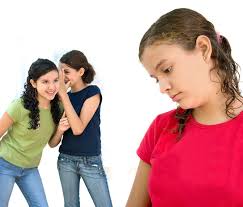Around here we’re experiencing a black and orange explosion. Each year the Halloween house make-overs get more impressive.
We’ve still got nine days to go, so I thought I’d get ahead of the curve and write about Halloween’s teachable moments for kids. Non-spoiler alert: This is not a parent tip sheet on how to put reasonable restrictions on kids’ sugar consumption. (That’s not a bad idea, but I leave it to the nutritionists.) Instead, let’s talk about the “mask” kids put on for Halloween vs. the mask many of our tweens and teens wear every single day. Halloween is a time to pretend to be someone else. It can be great fun and I’m a huge fan. But what happens when your child wears a mask all the time, hiding who he or she really is because of fear of disapproval from peers or even from you?
I’ve been thinking about the fine art of faking it for a long time because I work with tweens and teens and, face it, they can be masters of deception. When I talk to kids about consciously putting on a “mask,” as we do when we get up on stage to perform in a play or dress up to explore other identities, it fits right into the idea of figuring out who you are, which is the manifesto of adolescence. But when we get so attached to hiding behind the mask that we’re no longer conscious of wearing it then we are faking it without knowing it. That’s never a good place to be, especially at a time when our tweens and teens ought to be exploring what it means to be one’s authentic self.
I have asked kids: How do you know when you’re faking it? They’ve provided profound responses, like these:
I get a sinking feeling in my stomach.
I feel like what I’m doing is not really me, but I continue doing it anyway.
I feel like a fraud in my own body.
I feel like a jumble of very confused spaghetti.
We ought to encourage our kids to reflect deeply on who they are and who they are becoming. They need to think clearly, despite the cacophony of judgments and opinions happening around them and within them. The best way I know to do that is by telling them how much we appreciate who they are when they are being authentic. We need to also model authenticity in own our lives. That doesn’t mean that we are always a certain way. Our behavior and attitudes change depending on circumstance and setting, and that’s appropriate. But when it’s “just us,” in the family, we need to create opportunities to talk about what it means to be true to oneself and to have integrity. No faking it.















